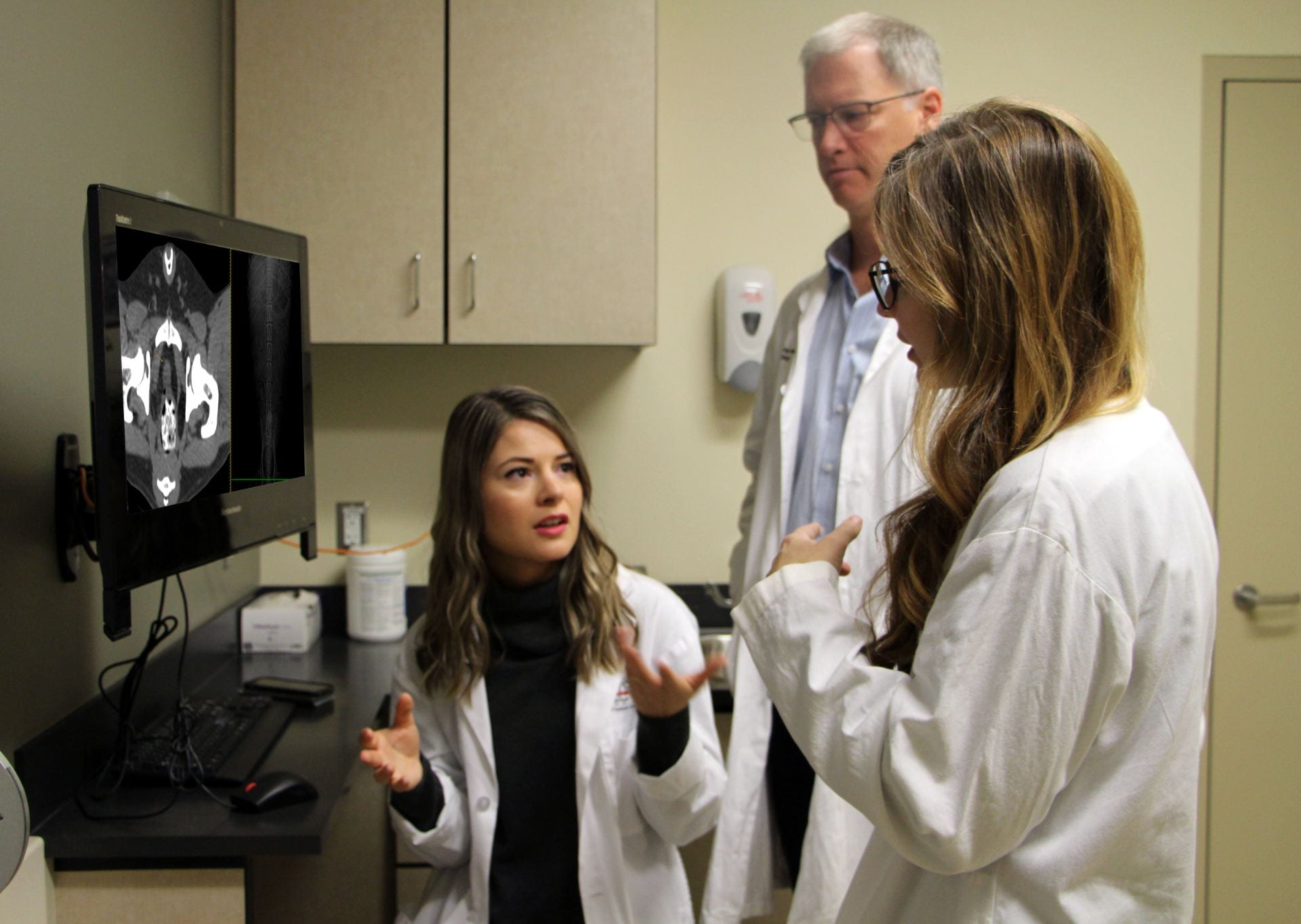
Collaborating for the Best Care
OVC is improving the quality of life for both animals and humans through leading-edge research and clinical trials. Your pet’s participation helps make it all possible.
We offer the highest standard of care for your pet. Veterinary clinical trials allow discovery of new and improved ways to prevent disease and diagnose or treat existing and future patients in all specialties of veterinary medicine.

Impact on Human Health Research
Companion animals, including pet dogs and cats, share many diseases and disorders with humans, ranging from cancers to cardiac diseases to psychiatric disorders. Additionally, our pets have huge genetic diversity, and live in the same shared, complex environment with us. Therefore, naturally occurring diseases in companion animals present an almost perfect model—and a largely untapped opportunity—for the development of new disease treatments.
While some clinical trials are designed specifically to improve veterinary health, translational clinical trials are also designed as an intermediate step to inform the design of human clinical trials. OVC and the University of Guelph is a hub for translational research in Canada and has launched the first of its kind ‘Bench to Bedside Institute for Translational Health Research and Innovation.’



